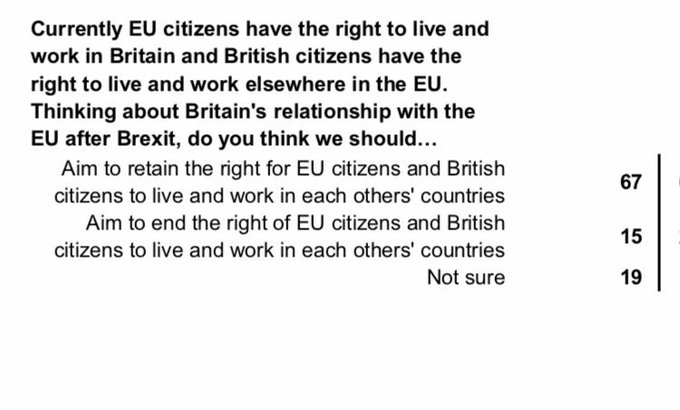When citizens perceive government as responsive, they& #39;re more likely to make claims. https://www.cambridge.org/core/journals/british-journal-of-political-science/article/escaping-the-disengagement-dilemma-two-field-experiments-on-motivating-citizens-to-report-on-public-services/18314789FA75DD9E632CDD5F2D4FD429
This">https://www.cambridge.org/core/jour... paper uses a neat identification strategy & persuasively demonstrates an important causal mechanism
But if I may make a few meta-comments about field experiments...
This">https://www.cambridge.org/core/jour... paper uses a neat identification strategy & persuasively demonstrates an important causal mechanism
But if I may make a few meta-comments about field experiments...
What happens next?
This shows feedback, but is it enough to create a self-sustaining positive feedback loop?
whereby citizens& #39; heightened expectations of responsive governance increase reporting, motivating improved service delivery?
Or not? Maybe there are obstacles?
This shows feedback, but is it enough to create a self-sustaining positive feedback loop?
whereby citizens& #39; heightened expectations of responsive governance increase reporting, motivating improved service delivery?
Or not? Maybe there are obstacles?
I raise this meta-point because I see many field experiments of this kind: identifying causal mechanisms by observing the effects of X.
And my reply is great, that& #39;s one part of the chain, certainly valuable, but what happens next?
And my reply is great, that& #39;s one part of the chain, certainly valuable, but what happens next?
Yes, heightened expectations may increase reporting in one year
But is this enough to sustain a positive feedback loop over time?
Because it& #39;s that positive feedback loop (iterative process of claims making, demands, aspirations, concessions) that actually improves governance.
But is this enough to sustain a positive feedback loop over time?
Because it& #39;s that positive feedback loop (iterative process of claims making, demands, aspirations, concessions) that actually improves governance.
UPDATE! In a subsequent paper, the authors DO explore what happened next.. I& #39;d love to see more field experiments & scholars of other methodological persuasions trace what enables or prevents positive feedback loops. Thanks Mark! https://twitter.com/MarkBuntaine/status/1194675305937424384?s=20">https://twitter.com/MarkBunta...
Anyway, I& #39;d love to hear feedback* from other field experimenters.. What do you think of my concern? My objection to & #39;experiment and go& #39;? Is this an unfair slur? Is it something that can be addressed?
*apologies for the obvious & terrible pun.
*apologies for the obvious & terrible pun.
Moral outrage -> protests.
If sustained, social movements can build effective resistance
But this is uncommon!
So we really need to trace change over time, to understand how movements are sustained (or not) - like these two new books on https://abs.twimg.com/emoji/v2/... draggable="false" alt="🇪🇬" title="Flag of Egypt" aria-label="Emoji: Flag of Egypt"> &
https://abs.twimg.com/emoji/v2/... draggable="false" alt="🇪🇬" title="Flag of Egypt" aria-label="Emoji: Flag of Egypt"> & https://abs.twimg.com/emoji/v2/... draggable="false" alt="🇺🇸" title="Flag of United States" aria-label="Emoji: Flag of United States">
https://abs.twimg.com/emoji/v2/... draggable="false" alt="🇺🇸" title="Flag of United States" aria-label="Emoji: Flag of United States">
If sustained, social movements can build effective resistance
But this is uncommon!
So we really need to trace change over time, to understand how movements are sustained (or not) - like these two new books on
If we consider phenomena that have shaped our world today: the industrial revolution, democratisation, women& #39;s leadership
These are all positive feedback loops
Why didn& #39;t they stall? Why were they sustained?
To answer these questions, we need more info than one-off effects.
These are all positive feedback loops
Why didn& #39;t they stall? Why were they sustained?
To answer these questions, we need more info than one-off effects.
TROLL ME IF YOU DISAGREE
1) Socio/econ/political progress occurs IFF built up over a 10yr + feedback loops
2) (1) is important, uncommon, & poorly understood
3) Observing one-off effects does not help us understand (1)
4) We should do more to identify the causes of (1).
1) Socio/econ/political progress occurs IFF built up over a 10yr + feedback loops
2) (1) is important, uncommon, & poorly understood
3) Observing one-off effects does not help us understand (1)
4) We should do more to identify the causes of (1).
** i& #39;m being very generous with (1). my own preference is to think in terms of 30 year periods...

 Read on Twitter
Read on Twitter
 &https://abs.twimg.com/emoji/v2/... draggable="false" alt="🇺🇸" title="Flag of United States" aria-label="Emoji: Flag of United States">" title="Moral outrage -> protests.If sustained, social movements can build effective resistance But this is uncommon!So we really need to trace change over time, to understand how movements are sustained (or not) - like these two new books on https://abs.twimg.com/emoji/v2/... draggable="false" alt="🇪🇬" title="Flag of Egypt" aria-label="Emoji: Flag of Egypt"> &https://abs.twimg.com/emoji/v2/... draggable="false" alt="🇺🇸" title="Flag of United States" aria-label="Emoji: Flag of United States">" class="img-responsive" style="max-width:100%;"/>
&https://abs.twimg.com/emoji/v2/... draggable="false" alt="🇺🇸" title="Flag of United States" aria-label="Emoji: Flag of United States">" title="Moral outrage -> protests.If sustained, social movements can build effective resistance But this is uncommon!So we really need to trace change over time, to understand how movements are sustained (or not) - like these two new books on https://abs.twimg.com/emoji/v2/... draggable="false" alt="🇪🇬" title="Flag of Egypt" aria-label="Emoji: Flag of Egypt"> &https://abs.twimg.com/emoji/v2/... draggable="false" alt="🇺🇸" title="Flag of United States" aria-label="Emoji: Flag of United States">" class="img-responsive" style="max-width:100%;"/>



